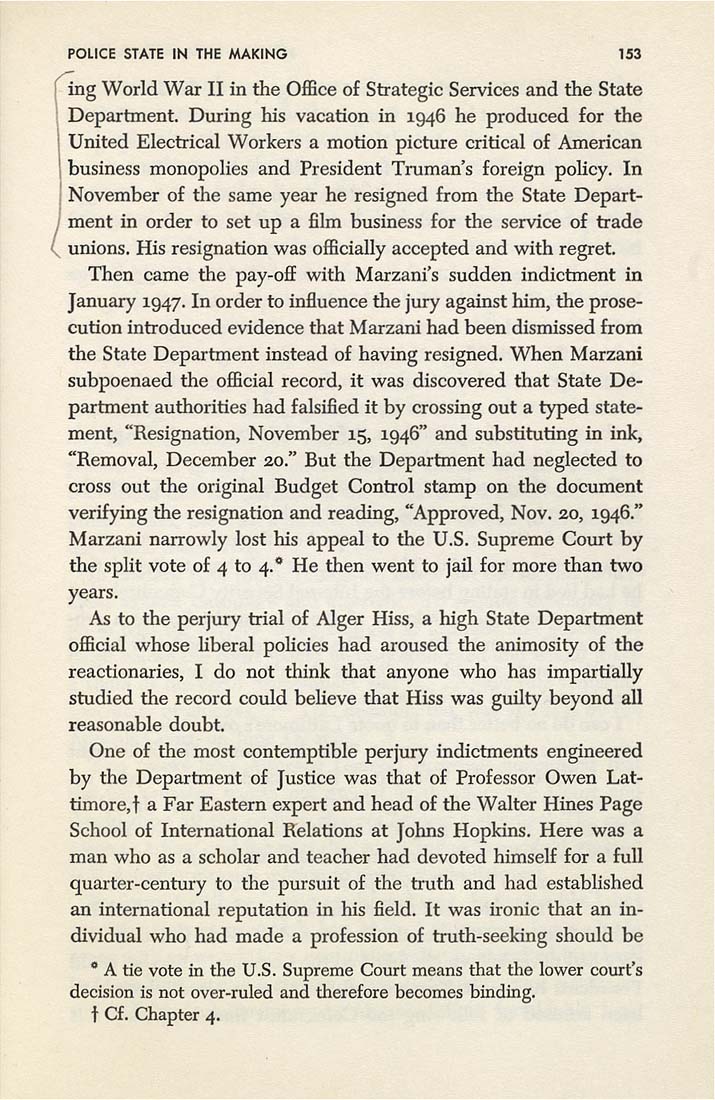POLICE STATE IN THE MAKING 153
ing World War II in the Office of Stiategie Services and the State
Department. During his vacation in 1946 he produced for the
United Electtical Workers a motion picture critical of American
business monopolies and President Tmman's foreign policy. In
November of the same year he resigned from the State Depart¬
ment in order to set up a film business for the service of tiade
, unions. His resignation was officially accepted and with regret.
Then came the pay-off with Marzani's sudden indictment in
January 1947. In order to influence the jury against him, the prose¬
cution intioduced evidence that Marzani had been dismissed from
the State Department instead of having resigned. When Marzani
subpoenaed the official record, it was discovered that State De¬
partment authorities had falsified it by crossing out a typed state¬
ment, "Resignation, November 15, 1946" and substituting in ink,
"Removal, December 20." But the Department had neglected to
cross out the original Budget Contiol stamp on the document
verifying the resignation and reading, "Approved, Nov, 20, 1946."
Marzani narrowly lost his appeal to the U.S. Supreme Court by
the split vote of 4 to 4.' He then went to jail for more than two
years.
As to the perjury trial of Alger Hiss, a high State Department
official whose liberal poHcies had aroused the animosity of the
reactionaries, I do not think that anyone who has impartially
studied the record could believe that Hiss was guilty beyond all
reasonable doubt.
One of the most contemptible perjury indictments engineered
by the Department of Justice was that of Professor Owen Lat¬
timore,! a Far Eastern expert and head of the Walter Hines Page
School of International Relations at Johns Hopkins, Here was a
man who as a scholar and teacher had devoted himself for a full
quarter-century to the pursuit of the truth and had established
an international reputation in his field. It was ironic that an in¬
dividual who had made a profession of truth-seeking should be
" A tie vote in the U.S. Supreme Court means that the lower court's
decision is not over-ruled and therefore becomes binding.
t Cf. Chapter 4.
|








